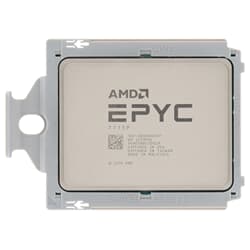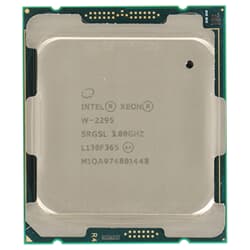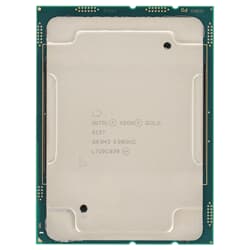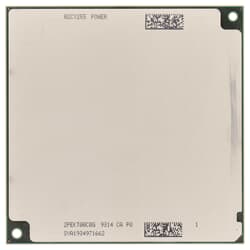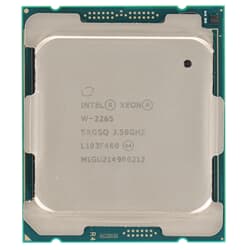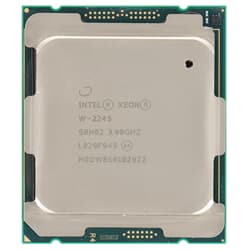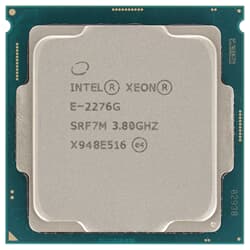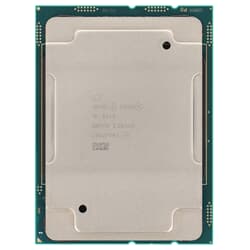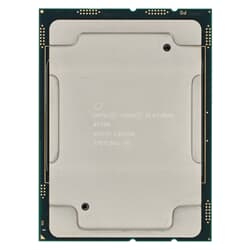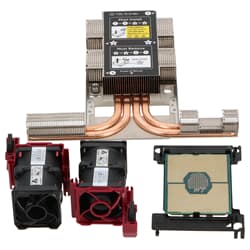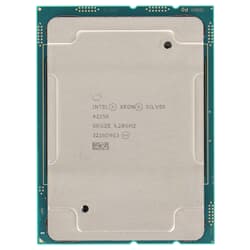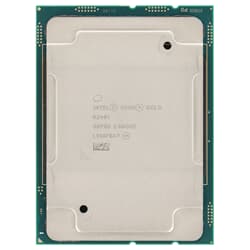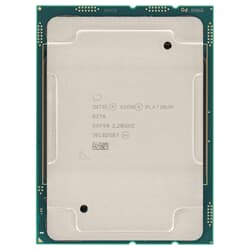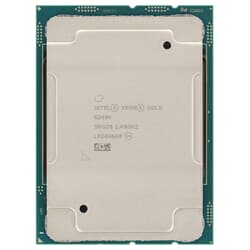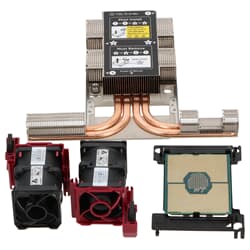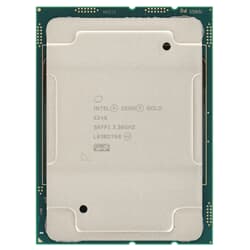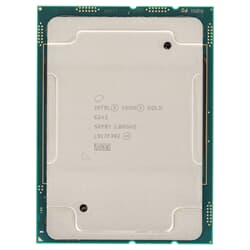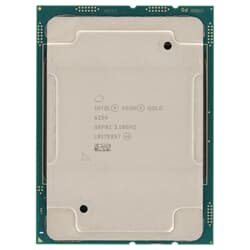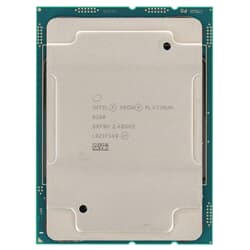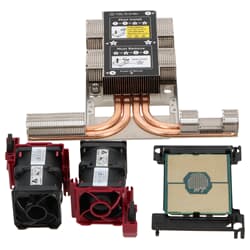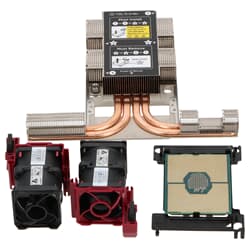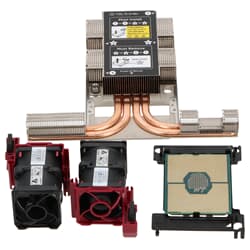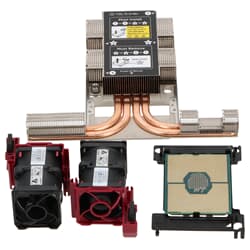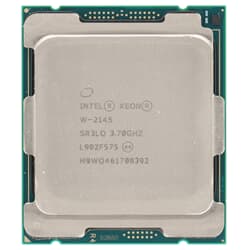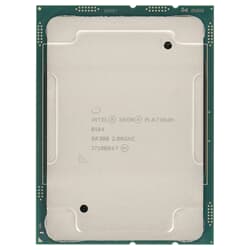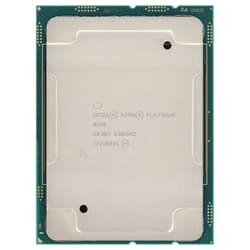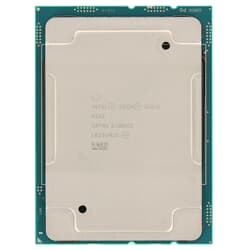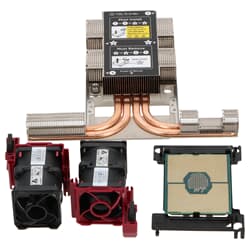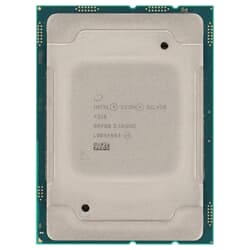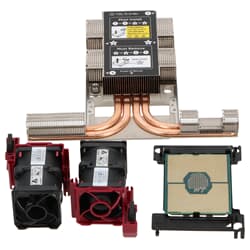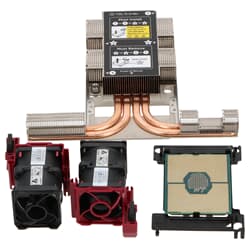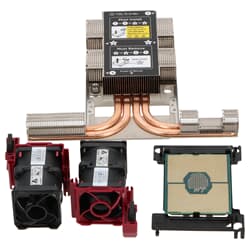Server Processors – Intel Xeon & AMD EPYC CPUs
Whether you're looking for a powerful Intel Xeon or an efficient AMD EPYC – at GEKKO Computer you’ll find a curated selection of server processors for a wide range of enterprise applications. Ideal for virtualization, databases, compute-intensive tasks, or upgrading existing server platforms. All CPUs are tested, in stock, and offer excellent value for money.
Server Processors at a Glance – Architecture, Performance, and Use Cases
Server-grade CPUs are the core of every professional IT infrastructure. Unlike consumer processors, they are designed for continuous operation, high parallelism, and maximum reliability. In this category, you'll find a broad range of modern multi-core processors from leading manufacturers like Intel and AMD – ideal for everything from terminal servers to fully virtualized cloud platforms.
Key Technical Characteristics – What Sets Server CPUs Apart
Server processors differ significantly from desktop CPUs in design and functionality. Their features are optimized for performance, stability, and scalability in demanding environments. The most important distinctions include:
- Higher Core Counts: Server CPUs offer significantly more cores – up to 64 per socket in AMD’s EPYC series. They are designed for parallel workloads and multithreaded environments, such as virtualization or database processing.
- Larger Cache Sizes: Server CPUs typically feature much larger L3 cache capacities than desktop models, which improves performance in memory-intensive operations by minimizing data access latency.
- Dedicated Socket Types: Instead of consumer sockets like LGA1700, server processors use specialized platforms such as LGA3647 (Intel Xeon Scalable), LGA4189 (Ice Lake), or SP3/SP5 (AMD EPYC). These support quad-channel memory, dual- or quad-socket configurations, and PCIe 4.0/5.0.
- ECC Memory Support: Server CPUs work with ECC RAM (Error Correcting Code), which automatically detects and corrects memory errors. This is essential in mission-critical environments where stability is non-negotiable.
- Thermal Design Power (TDP): Due to their performance density, server CPUs range from 85 to over 280 watts in TDP. Efficient thermal management is crucial, typically achieved in rackmount or blade systems with active airflow.
Manufacturing Processes and CPU Generations
Modern server CPUs are produced using advanced semiconductor processes, commonly between 7 nm and 14 nm depending on generation and manufacturer. Smaller manufacturing nodes typically result in better energy efficiency, lower heat output, and improved performance-per-watt.
Intel’s Xeon Scalable platforms include generations such as Skylake, Cascade Lake, Ice Lake, and Sapphire Rapids – suitable for both single- and multi-socket configurations. AMD’s EPYC line (7001 Naples, 7002 Rome, 7003 Milan, and 9004 Genoa) focuses on maximizing core density and memory bandwidth, making them highly competitive in virtualized and scalable environments.
Clock Speed, Turbo Boost, and Application Focus
While desktop CPUs often focus on high base clock speeds, server processors are optimized for throughput and efficiency. Typical base frequencies range between 1.8 GHz and 3.2 GHz, with dynamic boosting via Intel Turbo Boost or AMD Precision Boost on demand.
It’s important to note that base clock speed alone is not the most critical metric in server environments. For multi-threaded workloads like container platforms, SQL databases, or rendering tasks, total core performance is more relevant – making CPUs with high core and thread counts the better choice.
Typical Use Cases for Server CPUs
Different processor models are better suited to specific deployment scenarios. Here are some common examples:
- Virtualization (VMware, Proxmox, Hyper-V): High core counts, large memory support, and advanced features are key – ideal choices include Intel Xeon Gold/Platinum and AMD EPYC Rome/Milan models.
- Web Servers & Application Hosting: Mid-range CPUs with 6–12 cores, such as Xeon Silver or entry-level EPYC models, offer a good balance between performance and power efficiency.
- Databases & In-Memory Computing: Large L3 caches and memory bandwidth are critical – Xeon Scalable and AMD EPYC 7xx2/7xx3 are well-suited for these tasks.
- CAD, Rendering, HPC (High Performance Computing): CPUs with dense core architectures and AVX support deliver excellent results for technical computing, often combined with GPU acceleration.
- File, Backup, and Mail Servers: Lower TDP models such as legacy Xeon E5 or compact EPYC CPUs are suitable for these reliable, low-overhead services.
Conclusion: Choosing the Right Server CPU
Selecting the right processor is essential for building an efficient, scalable, and reliable server platform. Key factors include socket type, RAM compatibility, cache size, core count, and energy consumption – all of which must align with the intended use case.
Our catalog includes a variety of thoroughly tested server CPUs across multiple performance tiers and generations. We’re happy to support you in choosing the ideal configuration – whether you need a CPU for expansion, replacement, or building a new high-performance server system.

